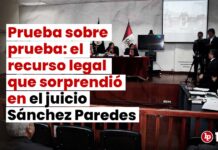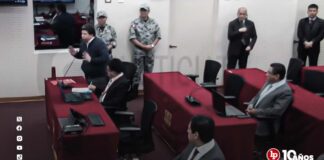Fundamentos destacados: 200. La cuestión que el Tribunal debe abordar en el presente asunto es si las decisiones de los tribunales belgas por las que se ordenó a la demandante anonimizar la versión electrónica del artículo impugnado en el sitio web del periódico Le Soir, basándose en el «derecho al olvido», constituyeron una violación de la libertad de expresión con arreglo al artículo 10 del Convenio. A este respecto, deberá determinar si la orden de anonimización se basó en motivos pertinentes y suficientes en las circunstancias específicas del presente asunto y, en particular, si fue proporcionada al objetivo legítimo perseguido.
[…]
205. Por su parte, la Gran Sala considera que su apreciación debe tener en cuenta el contexto diferente del presente asunto en comparación con los asuntos relativos a la publicación inicial. Teniendo en cuenta los principios generales antes mencionados y, en particular, la necesidad de preservar la integridad de los archivos de prensa, así como, en cierta medida, la práctica de los tribunales de los Estados miembros del Consejo de Europa (véanse los apartados 88 a 132 supra), el Tribunal de Justicia considera que la ponderación de estos distintos derechos de igual valor que debe realizarse en el marco de una solicitud de modificación de contenidos periodísticos archivados en línea debe tener en cuenta los siguientes criterios (i) la naturaleza de la información archivada; (ii) el tiempo transcurrido desde los hechos y desde la publicación inicial y en línea; (iii) el interés contemporáneo de la información; (iv) si la persona que reclama el derecho al olvido es bien conocida y su conducta desde los hechos; (v) las repercusiones negativas de la disponibilidad continua de la información en línea; (vi) el grado de accesibilidad de la información en los archivos digitales; y (vii) el impacto de la medida sobre la libertad de expresión y, más concretamente, sobre la libertad de prensa.
[Traducción de LP]
200. The question which the Court must address in the present case is whether the decisions of the Belgian courts ordering the applicant to anonymise the electronic version of the impugned article on the website of the newspaper Le Soir, on grounds of the “right to be forgotten”, amounted to a violation of freedom of expression under Article 10 of the Convention. In that connection it will have to determine whether the anonymisation order was based on relevant and sufficient reasons in the specific circumstances of the present case and, in particular, whether it was proportionate to the legitimate aim pursued.
[…]
205. For its part, the Grand Chamber considers that its assessment should take account of the different context of the present case compared with cases concerning initial publication. Regard being had to the general principles referred to above and in particular to the need to preserve the integrity of press archives, and also, to some extent, to the practice of the courts in the Council of Europe member States (see paragraphs 88-132 above), the Court considers that the balancing of these various rights of equal value to be carried out in the context of a request to alter journalistic content that is archived online should take into account the following criteria: (i) the nature of the archived information; (ii) the time that has elapsed since the events and since the initial and online publication; (iii) the contemporary interest of the information; (iv) whether the person claiming entitlement to be forgotten is well known and his or her conduct since the events; (v) the negative repercussions of the continued availability of the information online; (vi) the degree of accessibility of the information in the digital archives; and (vii) the impact of the measure on freedom of expression and more specifically on freedom of the press.
[Idioma original]
GRAND CHAMBER
CASE OF HURBAIN v. BELGIUM
(Application no. 57292/16)
JUDGMENT
Art 10 • Freedom of expression • Newspaper publisher ordered to anonymise online archived version of lawful article published twenty years earlier, on grounds of “right to be forgotten” of driver who caused a fatal accident • Need to preserve integrity of press archives • Clarification of scope of “right to be forgotten online”, a nonautonomous right linked to the right for respect for reputation • Establishment of criteria and rules for balancing the various rights at stake • Account taken by national courts of the nature and seriousness of the judicial facts reported on in the article, the lack of topical, historical and scientific interest and the fact that the person concerned was not well known • Continued online availability of article without restrictions apt to create “virtual criminal record” in view of the rehabilitation of the person concerned and the considerable time elapsing since publication of the original article • Anonymisation did not impose excessive and impracticable burden on publisher, while constituting the most effective means of protecting the privacy of the person concerned • Balancing of competing interests by the domestic courts in accordance with the Convention requirements • Interference proportionate and limited to what was strictly necessary
STRASBOURG
4 July 2023
This judgment is final but it may be subject to editorial revision.
In the case of Hurbain v. Belgium,
The European Court of Human Rights, sitting as a Grand Chamber composed of:
Marko Bošnjak, President,
Pere Pastor Vilanova,
Arnfinn Bårdsen,
Faris Vehabović,
Egidijus Kūris,
Iulia Antoanella Motoc,
Yonko Grozev,
Carlo Ranzoni,
Alena Poláčková,
Tim Eicke,
Jovan Ilievski,
Jolien Schukking,
Péter Paczolay,
Gilberto Felici,
Lorraine Schembri Orland,
Ana Maria Guerra Martins,
Frédéric Krenc, judges,
and Johan Callewaert, Deputy Grand Chamber Registrar,
Having deliberated in private on 9 March and 23 November 2022 and on 10 May 2023,
Delivers the following judgment, which was adopted on the last-mentioned date:
INTRODUCTION
1. The present case concerns a civil judgment against the applicant, the publisher of the Belgian daily newspaper Le Soir, ordering him to anonymise, on grounds of the “right to be forgotten”, the electronic online version of an article in the archives which mentioned the full name of G., the driver responsible for a fatal road-traffic accident in 1994. In his application the applicant relied on Article 10 of the Convention.
PROCEDURE
2. The case originated in an application (no. 57292/16) against the Kingdom of Belgium lodged with the Court under Article 34 of the Convention for the Protection of Human Rights and Fundamental Freedoms (“the Convention”) by a Belgian national, Mr Patrick Hurbain (“the applicant”), on 26 September 2016.
3. The applicant was represented by Mr A. Berenboom and Ms S. Carneroli, lawyers practising in Brussels. The Belgian Government (“the Government”) were represented by their Agent, Ms I. Niedlispacher, of the Federal Justice Department.
4. The application was allocated to the Third Section of the Court (Rule 52 § 1 of the Rules of Court). On 7 September 2018 the Government were given notice of the application. G. was given leave to intervene in the written procedure (Article 36 § 2 of the Convention and Rule 44 § 3).
5. On 22 June 2021 a Chamber of the Third Section, composed of Georgios A. Serghides, President, Paul Lemmens, Georges Ravarani, María Elósegui, Darian Pavli, Anja Seibert-Fohr, Peeter Roosma, judges, and Milan Blaško, Section Registrar, unanimously declared the application admissible and held, by six votes to one, that there had been no violation of Article 10 of the Convention. The dissenting opinion of Judge Pavli was annexed to the judgment.
6. On 16 September 2021 the applicant requested the referral of the case to the Grand Chamber in accordance with Article 43 of the Convention. On 11 October 2021 the panel of the Grand Chamber granted the request.
7. The composition of the Grand Chamber was determined in accordance with the provisions of Article 26 §§ 4 and 5 of the Convention and Rule 24.
8. The applicant and the Government each filed further written observations on the merits of the case (Rule 59 § 1).
9. The President of the Grand Chamber gave leave to sixteen organisations and entities, all represented by the organisation ARTICLE 19, to submit written comments (Article 36 § 2 of the Convention and Rule 44 § 3). G. was informed that the leave to intervene granted in the Chamber proceedings continued before the Grand Chamber. The third-party interveners submitted comments before the Grand Chamber.
[Continúa…]
![La prohibición del acceso a la conclusión y terminación anticipada en el delito de violación sexual quebranta el derecho a la igualdad ante la ley [Casación 4219-2024, La Libertad, f. j. 16]](https://img.lpderecho.pe/wp-content/uploads/2025/10/MAZO-LIBROS-BIBLIOTECA-LPDERECHO-218x150.jpg)
![Sujeto que afirma tener la condición de fiscal mostrando un carnet no incurre en un delito de falsedad genérica ni en el de ostentación de distintivos de función pública, pues la resolución administrativa que lo nombra generó ipso iure dicha condición, sin que la juramentación posterior altere lo que ya había adquirido formalmente (acto jurídico constitutivo) [Exp. 06342-2023-4, ff. jj. 18-20]](https://img.lpderecho.pe/wp-content/uploads/2025/10/MAZO-ABOGADO-BALANZA-DOCUMENTOS-LPDERECHO-218x150.jpg)
![Lavado de activos: la responsabilidad penal por lavado de activos puede surgir al actuar como administrador de hecho en una empresa financiada con fondos ilícitos [RN 1249-2023, Nacional, f. j. 16] dinero-soles-indemnización-sueldo](https://img.lpderecho.pe/wp-content/uploads/2021/12/Dinero-sueldo-soles-lavado-de-activos-penal-LPDerecho-3-218x150.png)
![Aunque las declaraciones previas conservan su valor probatorio, si el contenido no contribuye a esclarecer los hechos, juez debe agotar los mecanismos disponibles —como la notificación al domicilio Reniec y otros que haya proporcionado y, de ser necesario, la conducción compulsiva— para que los testigos comparezcan y aclaren la información brindada [RN 1260-2023, Puno ff. jj. 7.8, 7.10]](https://img.lpderecho.pe/wp-content/uploads/2025/07/JUEZ-MAZO-ESPOSAS2-LPDERECHO-218x150.jpg)
![El privilegio deliberativo alcanza a los funcionarios de alta dirección y a las entidades del Estado con función jurisdiccional, otorgándoles un espacio reservado para discutir, debatir y formarse una opinión antes de tomar decisiones sobre materias de interés público (doctrina jurisprudencial vinculante) [Exp. 02506-2022-PHD/TC, ff. jj. 41-43]](https://img.lpderecho.pe/wp-content/uploads/2025/11/PRIVILEGIO-DIRECCION-ENTIDADES-JURISDICCIONAL-LPDERECHO-218x150.jpg)

![Ley Orgánica del Registro Nacional de Identificación y Estado Civil (Ley 26497) [actualizada 2025]](https://img.lpderecho.pe/wp-content/uploads/2025/05/Ley-organica-del-registro-nacional-de-identificacion-y-estado-civil1-LPDERECHO-218x150.jpg)













![Indecopi: Inmobiliaria debe probar que el porcentaje pactado como penalidad correspondió al efectivo perjuicio por la frustración de la venta (cláusula penal abusiva) [Cas. 15070-2018, Ica]](https://img.lpderecho.pe/wp-content/uploads/2025/07/MAZO-DERECHO-PENAL-LPDERECHO-218x150.jpg)
![El trabajador de dirección lleva implícita la calificación de confianza [Cas. Lab. 32954-2022, Lima]](https://img.lpderecho.pe/wp-content/uploads/2024/11/contratacion-irregular-de-un-trabajador-LPDERECHO-218x150.jpg)
![¿Los beneficios del convenio colectivo alcanzan también a servidores no sindicalizados? [Informe Técnico 001992-2025-Servir-GPGSC]](https://img.lpderecho.pe/wp-content/uploads/2024/04/trabajador-confianza-companero-companerismo-ambiente-laboral-sindicato-LPDerecho-218x150.jpg)
![No toda reducción del sueldo básico implica una disminución de la remuneración total [Casación 16410-2023, Tacna]](https://img.lpderecho.pe/wp-content/uploads/2024/11/exfuncionario-recursos-humanos-sueldo-LPDERECHO-218x150.jpg)
![A los trabajadores que realizan labor intermitente, como los choferes del servicio de transporte interprovincial, no les corresponde el pago de horas extras (conforme al art. 5 del DS 007-2002-TR), aun cuando realicen labores intermitentes que excedan las 12 horas diarias [Casación 46532-2025, La Libertad]](https://img.lpderecho.pe/wp-content/uploads/2023/06/mujer-trabajadora-computadora-trabajo-remoto-teletrabajo-asistente-LPDerecho-218x150.png)

![TC: Entidades jurisdiccionales están obligadas únicamente a emitir y/o entregar información (en caso se solicite) o a facilitar la ruta de acceso a la información indicada respecto de dicha función (doctrina jurisprudencial vinculante) [Exp. 02506-2022]](https://img.lpderecho.pe/wp-content/uploads/2023/05/tribunal-constitucional-tc-precedente-LPDerecho-218x150.png)
![Fundamento de voto: El art. VIII del NCPC ―sobre la interpretación conforme a las sentencias de los tribunales internacionales donde el Perú es parte― resulta inconstitucional, ya que contraviene la Cuarta D. F. T de la Constitución al reducir indebidamente el parámetro constitucional de interpretación del TC (caso cócteles) [Exp. 02109-2024-PHC/TC, ff. jj. 5-6]](https://img.lpderecho.pe/wp-content/uploads/2025/11/FUNDAMENTO-VOTO-ART-VIII-NCPC2-LPDERECHO-218x150.jpg)

![Modifican Reglamento de empadronamiento y amnistía por tenencia de arma de fuego de uso civil [Decreto Supremo 013-2025-IN]](https://img.lpderecho.pe/wp-content/uploads/2023/05/tenencia-ilegal-armas-fuego-LPDerecho-218x150.png)
![Modifican Reglamento para fortalecer funciones de la Autoridad Marítima Nacional [Decreto Supremo 014-2025-DE]](https://img.lpderecho.pe/wp-content/uploads/2025/11/AUTORIDAD-MARITIMA-DOC-LPDERECHO-218x150.jpg)

![Código Penal peruano [actualizado 2025]](https://img.lpderecho.pe/wp-content/uploads/2024/05/VENTA-CODIGO-PENAL-LPDERECHO-218x150.jpg)
![Decreto Legislativo del Notariado (Decreto Legislativo 1049) [actualizado 2025]](https://img.lpderecho.pe/wp-content/uploads/2025/10/DECRETO-LEGISLATIVO-NOTARIO-1049-2025-LPDERECHO-218x150.jpg)
![Ley General de Contrataciones Públicas [Ley 32069] (actualizada 2025)](https://img.lpderecho.pe/wp-content/uploads/2025/01/NUEVA-LEY-GENERAL-CONTRATACIONES-PUBLICAS-LPDERECHO-218x150.png)
![Ley Orgánica de Elecciones (Ley 26859) [actualizada 2025]](https://img.lpderecho.pe/wp-content/uploads/2025/05/Ley-organica-de-elecciones-LPDerecho-2025-218x150.jpg)







![[VIDEO] Juez propone que todos los delitos se tramiten en unidades de flagrancia, sin excepción](https://img.lpderecho.pe/wp-content/uploads/2025/05/DELITOS-PLANTEA-TABOA-LPDERECHO-218x150.jpg)
![EXP. N.° 0022-2009-PI/TC LIMA GONZALO TUANAMA TUANAMA Y MÁS DE 5000 CIUDADANOS SENTENCIA DEL TRIBUNAL CONSTITUCIONAL En Lima, a los 09 días del mes de junio de 2010, el Tribunal Constitucional en sesión de Pleno Jurisdiccional, con la asistencia de los magistrados Mesía Ramírez, Beaumont Callirgos, Vergara Gotelli, Landa Arroyo, Calle Hayen, Eto Cruz y Álvarez Miranda, pronuncia la siguiente sentencia con los fundamentos de voto de los magistrados Vergara Gotelli y Landa Arroyo, que se agregan. ASUNTO Demanda de Inconstitucionalidad interpuesta por Gonzalo Tuanama Tuanama, en representación de más de 5000 ciudadanos contra el Decreto Legislativo N.° 1089. DEMANDA Y CONTESTACIÓN a) Demanda contra el Decreto Legislativo N.° 1089, que regula el Régimen Temporal Extraordinario de Formalización y Titulación de Predios Rurales Con fecha 01 de julio de 2009, se interpone demanda de inconstitucionalidad contra el Decreto Legislativo N.° 1089, que regula el Régimen Temporal Extraordinario de Formalización y Titulación de Predios Rurales, publicada en el diario oficial El Peruano el 28 de junio de 2008. Los demandantes refieren que “'sin entrar al fondo del contenido de la norma”, ésta fue promulgada sin efectuar ninguna consulta previa e informada a los pueblos indígenas, tal como lo ordena el Convenio 169 de la Organización Internacional De Trabajo (OIT), afectándose con ello los derechos fundamentales de los pueblos Indígenas, como el derecho a la consulta previa y el derecho colectivo al territorio ancestral, establecidos en los artículos 6, 15, 17 del mencionado convenio. De igual forma, expresan que no se tomaron en cuenta los artículos 19, 30 y 32 de la Declaración de las Naciones Unidas sobre los Derechos de los Pueblos Indígenas (DNUDPI) aprobado por la Asamblea General de la Organización de Naciones Unidas. Alegan que con dicha norma se afectan otros derechos establecidos en el Convenio N.° 169, como el derecho sobre las tierras de los pueblos indígenas (artículos 13 al 19), en el considerando que no se tomaron en cuenta medida que garanticen la protección de sus derechos de propiedad y posesión. Refieren que se afecta también el derecho a la libre determinación de las comunidades nativas, previsto en el artículo 17 del Convenio, que declara el respeto de sus formas tradicionales de transmisión de sus territorios. Por último, alegan que se estaría vulnerando lo previsto en el artículo 19 del Convenio en cuanto se afecta el derecho al desarrollo de políticas agrarias adecuadas para los pueblos indígenas. [Continúa...] Descargue la resolución aquí](https://img.lpderecho.pe/wp-content/uploads/2023/01/Logo-LP-con-fondo-guinda-LPDERECHO-1068x561.png)


![Lavado de activos: condenado por TID tras incautación de cocaína en embarcación que seguía administrando, evidencia vínculo con el medio del delito y con una organización criminal [RN 1832-2023 CSNJ PENAL ESPECIALIZADA, f. j. 14] Lavado de activos](https://img.lpderecho.pe/wp-content/uploads/2021/11/Lavado-de-activos-dinero-penal-LPDerecho-1-218x150.png)
![Multan a Tottus por no incluir advertencia de «Alto en azúcar: Evitar su consumo excesivo» en Syrope sabor a maple [Res. 178-2025/CCD-Indecopi]](https://img.lpderecho.pe/wp-content/uploads/2024/10/tottus-indecopi-peru-LPDERECHO-324x160.jpg)
![Código Penal peruano [actualizado 2025]](https://img.lpderecho.pe/wp-content/uploads/2024/05/VENTA-CODIGO-PENAL-LPDERECHO-100x70.jpg)
![Código Procesal Penal peruano [actualizado 2025]](https://img.lpderecho.pe/wp-content/uploads/2024/02/VENTA-CODIGO-PENAL-BANNER-POST-TAPA-DURA-LPDERECHO-100x70.jpg)
![Código Civil peruano [actualizado 2025]](https://img.lpderecho.pe/wp-content/uploads/2024/05/VENTA-OFICIAL-CODIGO-CIVIL-2024-LPDERECHO-100x70.jpg)





![Multan a Tottus por no incluir advertencia de «Alto en azúcar: Evitar su consumo excesivo» en Syrope sabor a maple [Res. 178-2025/CCD-Indecopi]](https://img.lpderecho.pe/wp-content/uploads/2024/10/tottus-indecopi-peru-LPDERECHO-100x70.jpg)





![Para demostrar la vulneración del derecho a la igualdad en la aplicación de la ley, el demandante debe ofrecer un «término de comparación válido» que evidencie un trato desigual [Exp. 03389-2021-PA/TC, ff. jj. 16, 18-19]](https://img.lpderecho.pe/wp-content/uploads/2023/01/Logo-LP-con-fondo-guinda-LPDERECHO-324x160.png)